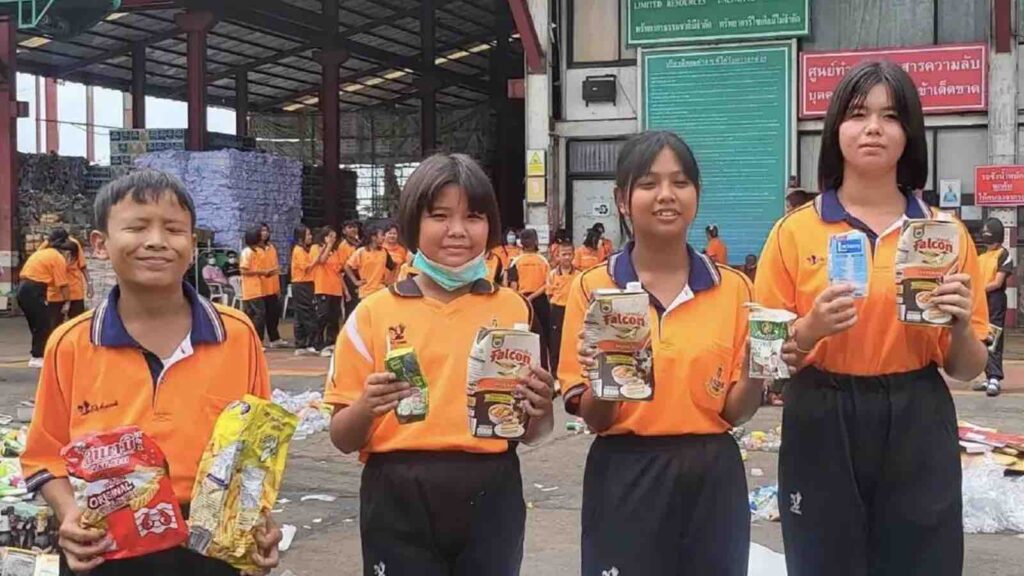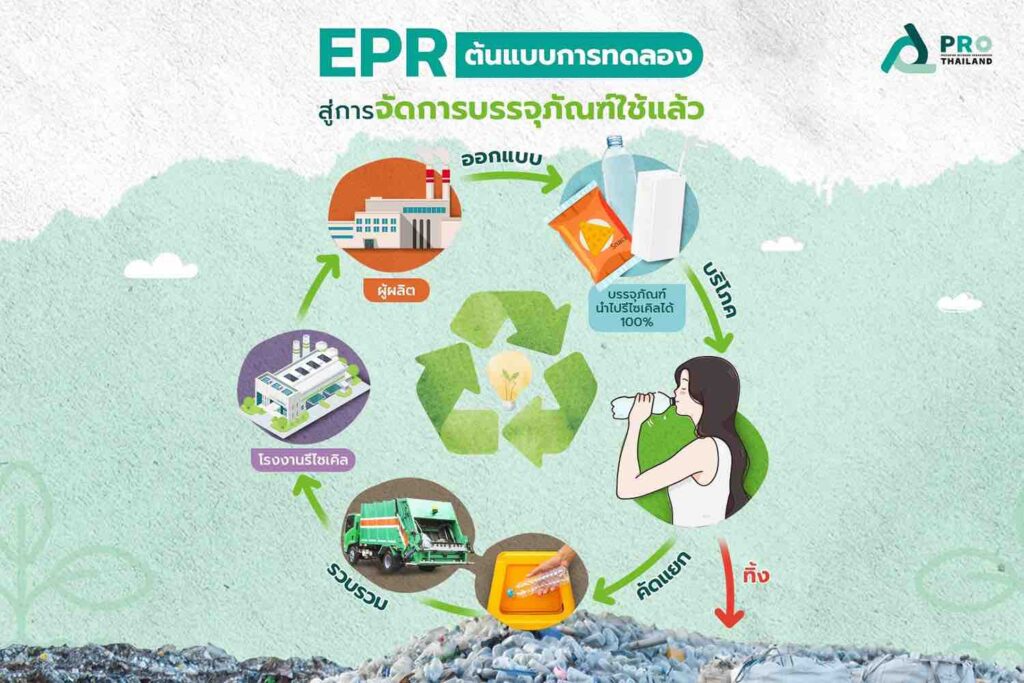The initiative, spearheaded by Eco Friendly Thai, the Saleng and Recycle Trader Association, and the Wongpanit Group, focuses on streamlining the collection and recycling of UHT cartons, which account for an estimated annual consumption of between 70,000 and 80,000 tons in Thailand.
In an ambitious push toward sustainability, the “Packaging Recovery Organization Thailand Network” (PRO-Thailand Network) has joined forces with the Resources Management for Sustainability (3R) Foundation. This partnership aims to bolster recycling efforts for post-consumer beverage cartons—ranging from milk to fruit juice and coconut milk cartons—across Thailand.
RELEVANT SUSTAINABLE GOALS


The initiative, spearheaded by Eco Friendly Thai, the Saleng and Recycle Trader Association, and the Wongpanit Group, focuses on streamlining the collection and recycling of UHT cartons, which account for an estimated annual consumption of between 70,000 and 80,000 tons in Thailand. Witoon Simachokedee, Chairman of the 3R Foundation, noted that despite such significant usage, the country lacks a systematic approach to collect or buy back these cartons after use, resulting in most being discarded as general waste.
Recycling these materials could transform them into high-quality paper pulp, which is then used as a raw material for producing kraft paper, fiber cement products, and tissue paper. The plastic and aluminum foil components found in these cartons are also recyclable, turning into useful products such as pallets, bricks, and synthetic wood for the real estate industry.
3R Foundation X PRO Thailand Collaboration
Over the past three years, the 3R Foundation has worked diligently with PRO-Thailand to promote buy-back mechanisms, encouraging the public to return used beverage cartons for recycling. “This collaborative network expansion is a major leap forward,” said Simachokedee. “It aligns all parties towards a common goal of collecting, purchasing, and aggregating post-consumer beverage cartons, thereby transforming them into valuable products and reducing potential environmental waste.”
Chaiyuth Ponlasen, President of the Saleng and Recycle Trader Association, highlighted the ongoing efforts to engage the network’s 35,000 members and extend outreach to Salengs—domestic rubbish scavengers—nationwide, promoting the purchase of UHT cartons. The Association is also actively working with governmental bodies like the Department of Environmental Quality Promotion (DEQP) and the Department of Pollution Control to advocate for public participation in segregating UHT cartons, turning waste into a monetary resource.
In a related development, Somthai Wongcharoen, President of the Wongpanit Group, has called on the public to sell rather than discard UHT cartons, with Wongpanit branches across Thailand ready to start purchasing them. “We’re setting up educational programs targeting students of all educational levels, as well as community households, to highlight the value of these cartons and the importance of recycling,” Wongcharoen added.
Somyos Watapanich, MD of Eco Friendly Thai and an expert in paper and UHT carton recycling, reaffirmed the significance of these partnerships. “By joining hands with the Saleng and Recycle Trader Association and the Wongpanit Group, we are making substantial headway in promoting the segregation and recycling of UHT cartons right from the consumer level to junk shops across the country,” he stated.
Advancing Thailand’s Waste Management Roadmap
Earlier this month, Thailand’s Pollution Control Department (PCD) is taking decisive steps to bolster sustainable waste management as part of the National Action Plan on Waste Management No. 2 (2022-2027). In a significant move, the PCD, in collaboration with the private sector, is pushing forward the draft Sustainable Packaging Management Act. This legislation, fundamental to the country’s waste management roadmap, aims to formalize the role of the Producer Responsibility Organization (PRO-Thailand Network) in managing post-consumer packaging.
According to the PCD, Thailand generated approximately 24.98 million tonnes of solid waste in 2021. Of this, only 7.89 million tonnes were recycled, while 9.28 million tonnes were properly disposed of. Alarmingly, over 7.81 million tonnes were improperly handled, underscoring the urgent need for improved waste management practices. The lack of segregation at the source not only leads to increased collection costs but also results in significant quantities of waste being contaminated and thus, non-recyclable.
The proposed Sustainable Packaging Management Act builds on the Extended Producer Responsibility (EPR) principle, which calls for the involvement of all stakeholders in the packaging value chain, from production through to disposal or recycling. This approach aims to ensure equality and fairness in the waste management process, promoting a circular economy that is both sustainable and efficient.
Since its pilot launch in 2020, the PRO-Thailand Network has focused on collecting three specific types of post-consumer packaging: PET bottles, UHT beverage cartons, and Multi-layered Packaging (MLP), including snack bags and refill pouches. Over four years, the initiative has collected 40,134.15 tonnes of PET bottles, 466.14 tonnes of UHT cartons, and 1,178.56 tonnes of MLP. The Network collaborates with 13 recycling plants across Thailand and works closely with the Saleng and Recycle Trader Association to enhance the recycling infrastructure.
Moreover, the PRO-Thailand Network has been instrumental in raising public awareness about the benefits of sustainable packaging management, encouraging community participation through various communication campaigns.
This comprehensive strategy marks a robust effort by Thailand to address its waste management challenges, leveraging legal frameworks, public-private partnerships, and community involvement to pave the way towards a more sustainable future.
Lead image courtesy of Pro-Thailand Network
You may also be interested in :
2023 Global Brand Audit : Coca-Cola And PEPSICO Lead As World’s Plastic Polluters



